#Jean-Philippe Toussaint
Explore tagged Tumblr posts
Text
Ce que j'avais découvert ce jour-là, c'est l'existence des souvenirs (J.-P. Toussaint)
L'hypothèse que j'avancerais est la suivante. Ce que j'avais découvert ce jour-là, c'est l'existence des souvenirs.
Mieux, la découverte stupéfiante que j'avais faite, c'est que les souvenirs sont susceptibles d'engendrer de la mélancolie. Car, même si les souvenirs d'un nourrisson ne peuvent remonter qu'à deux ou trois mois — et qu'est-ce que c'est deux ou trois mois en temps absolu? —, en temps relatif, cela correspond à la moitié de leur vie. On peut alors supposer que, si c'est au passé que j'avais rêvassé ainsi pendant ces heures d'acédie où j'étais demeuré immobile dans mon berceau, le nourrisson que j'étais avait dû se souvenir d'événements vécus deux ou trois mois plus tôt de la même manière que je me souviens moi-même aujourd'hui d'événements qui se sont passés il y a trente ou quarante ans, avec la même poignante mélancolie liée à la perception du passage du temps.
L'échiquier, p.145.
1 note
·
View note
Text
L’échiquier est-il un échec ?
Pardon pour le titre facile. L’échiquier de Jean-Philippe Toussaint ne m'a pas vraiment plu pour une accumulation de raisons. D'abord, je trouve Toussaint de plus en plus suffisant ; il se regarde écrire et s'admire sans qu'il n'y ait de réelle raison sinon du narcissisme. Les journalistes semblent faire grand cas du fait que le livre est divisé en 64 chapitres comme un échiquier, mais ce petit effort formel est ridicule quand on le compare, par exemple, avec tout ce qu'a fait et fait encore l'OULIPO. Comme je ne joue pas aux échecs, peut-être l'agencement des chapitres a-t-il une logique de partie que je n'ai pas saisie et dont je n'ai pu reconnaitre les indices. Laissons planer le doute. La partie autobiographique du livre n'est pas franchement intéressante, si ce n'est la description de la jalousie du père (mais il n'est plus là pour se défendre). Les pages consacrées à Gilles Andruet sont parfois émouvantes, mais elles sont parsemées de lignes que l'on dirait résumées d'articles de Wikipédia.
Certains paragraphes sont brillamment écrits, ce qui sauve le livre, qui ne tombe pas des mains, mais laisse un goût de dilettantisme complaisant.
0 notes
Text
Un lettré, un dessinateur et un écrivain
Il est toujours intéressant de sortir des œuvres lues pour en explorer une autre facette, celle par exemple de ceux qui les créent. Il ne s’agit pas ici de biographie, même si le genre est très intéressant, on suit un sentier balisé avec un début, un milieu et une fin. Voyons ici trois exemples de livres qui sortent des sentiers battus. Vie du lettré de William Marx, publié en 2099 aux Editions…

View On WordPress
#Angoulême#écrivain#Bande dessinée#Bastien Vivès#Création#Dernier week-end de Janvier#Dessinateur#Ecriture#Editions de Minuit#Jean-Philippe Toussaint#L&039;urgence et la patience#Les éditions de Minuit#Lettré#Littérature#Vie du lettré#William Marx
0 notes
Text
Presence, or Polaroid Ghosts (Part 7)
Part 6 Time and again, cinema seems drawn to Polaroid photography, often in unusual and tangential ways. Antonioni’s film, even if ultimately about 35mm photography, is not the only one to explore the strangely tangible qualities of space within photography (or the things contained within a photograph beyond the image). When looking at Polaroids, we perceive them spatially. By that I mean we…
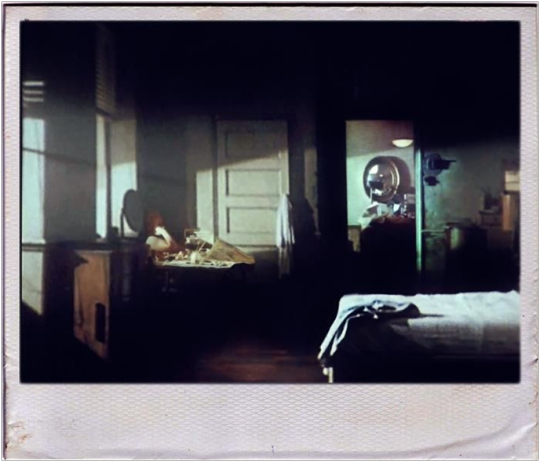
View On WordPress
#Adam Scovell#blade runner#blade runner behind the scenes#blade runner polaroid#Celluloid Wicker Man#David Hockney#do androids dream of electric sheep#esper machine#Film analysis#harrison ford#jean philippe toussaint#jean philippe toussant#john berger#philip k dick#photography#photography analysis#photography essay#polaroid#Polaroid analysis#Polaroid blog#Polaroid essays#Presence#Presence or polaroid ghosts#ridley scott#sean young#susan sontag
0 notes
Text
Paradoxes in the Revolutions of 1792 and the Revolt of 1870
Warning: There are some text elements in the treatment of Algerian deportees in New Caledonia that are shocking. So refrain from reading if you are not ready.
Do you share my impression of certain aspects of the different revolutions or uprisings in France? I mean, the French Revolution, at its most left-leaning during the government of Year II, was very conservative regarding property rights. Regarding property rights, the entire political class was very timid, even the far left like the Enragés and the Hébertists, who were more focused on economic issues like taxation. However, some, like Momoro, apparently began to consider land redistribution, such as sharing large farms, but without a clear plan (and far from any notion of collectivization of agriculture). There was a concession made by the Convention on property rights with the Ventôse Laws, perhaps? And it is true that on certain economic issues, there were conservative elements, even though during the journée of September 5, 1793, the sans-culottes managed to extract the maximum.
Even Gracchus Babeuf, who seems to advocate for collective exploitation, primarily talks about agriculture. I'm not saying there weren't progressive aspects. There were, like the introduction of universal suffrage, for example, and many other aspects, such as the fact that deputies like Louis Michel le Peletier defended the project to implement free, mixed, secular, and compulsory education, supported by several deputies, including Robespierre (it's sad that this was only adopted years later by a man who, opportunistically, in my opinion, lacked the integrity of Le Peletier, who seems to have been opposed to most of the revolutionaries of 1793-1794 and who unjustly reaped all the credit for this project—I’m talking about Jules Ferry, sorry to the fans of this character). But it must be acknowledged that there were also conservative aspects.
Paradoxically, the Convention proved to be extremely progressive compared to so many others regarding the colonies. The abbé Raynal, so conservative on property rights, apparently called Toussaint Louverture the "Black Spartacus." Sonthonax, considered a Brissotin and advocate of gradual abolition of slavery, did not hesitate to oppose the colonists and slaveholders (just like the Convention) by granting full citizenship to the revolting slaves of 1791 barely a year later. There was the dissolution of the colonial assembly, and important and well-known revolutionaries enthusiastically supported the revolts of the colonized, even their independence, like Deputy Marat or the prosecutor of the Commune, Chaumette, among many others. Black deputies were elected, such as Jean-Baptiste Belley. Some Black people managed to attain high ranks. The overly hostile colonists could be expelled, and there was the dismissal of Governor Philippe Blanchelande, who had distinguished himself by his fierce repression of the slave revolt. During his execution in 1793, Rosalie Julien, one of the important women of the revolution, wrote, "He made the blood of Blacks and patriots flow in streams." It is important to note that she equated the attack on Blacks with that on people considered patriots, a more common position at that time than one might think. I know we must be careful about anachronisms, but I feel that aside from a distrust of foreigners (though this did not prevent people like Fleuriot Lescot or Claude François Lazowski, who came from a Polish family, from holding important positions), the French political class was less racist in 1794 than in 1870 or during the mid-20th century, especially concerning the colonies and overseas territories. There was a regrettable step backward (honestly, can you imagine the Convention of Year II, or the Jacobin or Cordelier Clubs tolerating even the idea of a horrible human zoo as we saw in 1906? I can't). Of course, there were people who supported slavery at that time, like Cloots (a very questionable and paradoxical figure of the revolution, considered close to the Hébertists, yet a very wealthy and conservative man regarding property rights, who had pro-slavery thoughts and was a fervent supporter of colonization because his family and he profited from it, even though he supposedly wanted the Revolution to extend beyond borders according to his own words; according to historian Antoine Resche, he called himself the orator of the human race—very complicated as a revolutionary).
For those who think of the left envisioned by Karl Marx, we're still far from it. Here's an excerpt from The Holy Family: "The revolutionary movement that began in 1789 with the social circle, which, in the midst of its course, had as its main representatives Leclerc and Roux and eventually succumbed temporarily with Babeuf's conspiracy, had sown the seeds of the communist idea, which Babeuf's friend, Buonarroti, reintroduced in France after the revolution of 1830. This idea, developed consistently, is the idea of the new state of the world." Moreover, I have encountered communists who heavily criticize the revolutionaries, except for some ultra-revolutionary members (a few have even added Marat to the list of characters they appreciate, though they know he was not an ultra-revolutionary) by explaining that, in their view, the second revolution from 1792 until the fall of the last Montagnards like Charles Gilbert Romme remained bourgeois, though less so than the one of 1789.
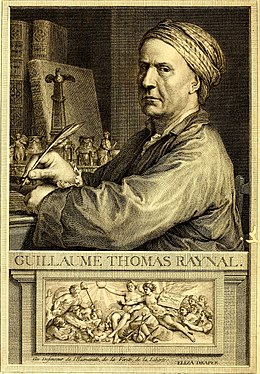
Abbé Raynal
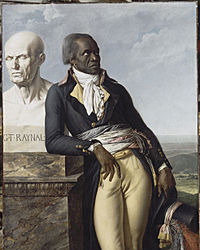
Jean Baptiste Belley
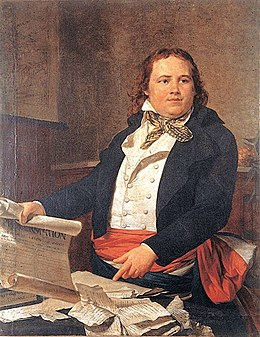
Léger-Félicité Sonthonax
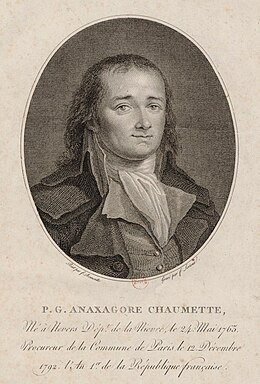
Pierre-Gaspard Chaumette
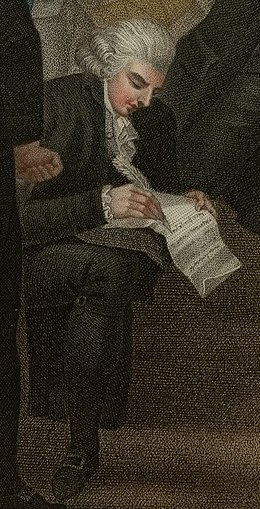
Jacques Roux
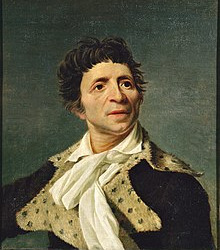
Jean Paul Marat
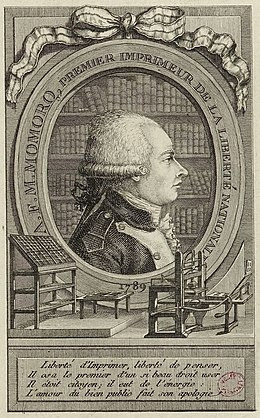
Antoine-François Momoro
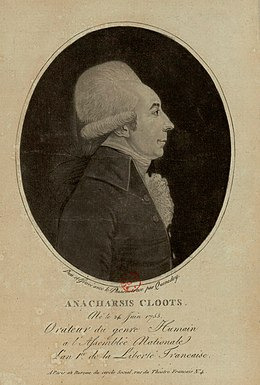
Anacharsis Cloots
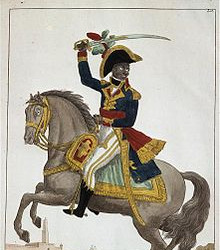
Toussaint Louverture
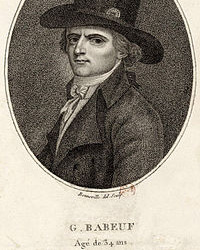
Gracchus Babeuf
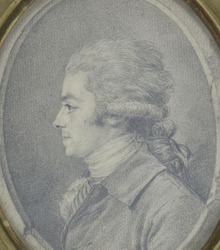
Jean-Baptiste Edmond Fleuriot-Lescot

Rosalie Jullien
On the other hand, we have the Paris Commune uprising of 1870, which ended in horrific repression (some estimate that 10,000 people died within a week in the city of Paris).
The origins of this Paris Commune are quite complex to explain, involving the fall of Napoleon III's dictatorship, Bazaine's lamentable behavior, the fact that the new regime forming a republic was composed of monarchists while Paris was predominantly republican, the new regime's abolition of wages, which was one of the only sources of income for workers, and so on.
These Paris communards represented various leftist movements, including the Blanquists, named after Auguste Blanqui (a small anecdote: the composer of "The Internationale" was a communard named Eugène Pottier), anarchists, Proudhonians, as well as centralists like Delescluze (some might even call them Jacobins, though I am not well-informed about that), and even collectivists. The Paris Commune marked a significant shift to the left (albeit briefly). I will mention four measures passed by this government: the abolition of night work (at least for bakers), the separation of Church and State, free, secular, and compulsory education, and the elimination of distinctions between legitimate and illegitimate children.
The repression was atrocious, with death sentences raining down (one of the key figures in the repression, alongside Thiers, was Jules Ferry), and deportations to New Caledonia as well.
It is here that the communards (or at least a significant number of them) were less progressive on certain issues than the main actors of the Convention of Year II. Except for individuals like Louise Michel or Charles Malato, the son of deported communards who followed them to Nouméa, most of the communards did not support the Kanaks at all. There was a lingering racist attitude towards these colonized people, who were also fighting against the injustices imposed on them by the French government. Some even participated in the repression against the Kanaks following the Great Kanak Revolt of 1878, whose main leaders were Atai, chief of Komalé, and Cavio, chief of Nékpi, among others.
I have the impression that the communards behaved similarly toward the deported Algerians. Indeed, in 1869, a significant new insurrection broke out in Algeria, spreading from Kabylie, the Aurès, and towards Algiers, and other territories (the war against France began in 1830, with the defeat of Emir Abdelkader in 1847, the division of three departments in 1848, and the continued Algerian resistance against the establishment of the French colony, notably led by Lalla Fatma N’Soumer and Cherif Boubaghla, though Fatma N'Soumer was captured by the French army in 1857 and died in captivity in 1863 at the age of 33, and Cherif Boubaghla died in combat in 1854; other uprisings lasted until 1870, and one of the most significant was that named Mokrani revolt ).
The insurrection was defeated after fierce fighting, with death sentences raining down, the expulsion of tribes, the sequestration of property, and deportations as well, with around 60 deportees dying from the conditions of deportation. Louise Michel described their arrival in these terms: "We saw them arrive in their great white burnouses, the Arabs deported for having also risen up against oppression. These Orientals, imprisoned far from their tents and flocks, were simple and just, and could not understand the way they had been treated."
They had even fewer privileges than the deported communards. According to some sources, they were chained with red-hot irons, subjected to more intense forced labor, and had to eat soup from the shoes of the jailers. They were forcibly separated from their wives, leading some to marry Kanaks, while others married communard women. It is true that some communards, like Louise Michel and Jean Allemane, campaigned for their amnesty. There were escapes by Algerians, some of whom were recaptured. One of the most famous was Azziz El Haddad, who died in the home of his friend the communard and former deportee Eugène Mourot on August 22, 1895, in Paris. Mourot was also opposed to the colonization of Algeria. A collection by the communards against colonization ensured that his body was repatriated to Algeria.
However, while some deported communards supported them, it should not be forgotten that other communards were driven by colonialist mindsets. It is also interesting to learn more about the Commune of Algiers, proclaimed by Alexandre Lambert, among others. Some European insurgents supported a fraternal republic, but one that excluded Algerian insurgents. Alexandre Lambert, who was killed during the Bloody Week, published a newspaper called Le Colon. The title is quite telling.
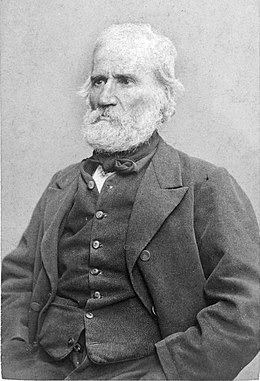
Auguste Blanqui
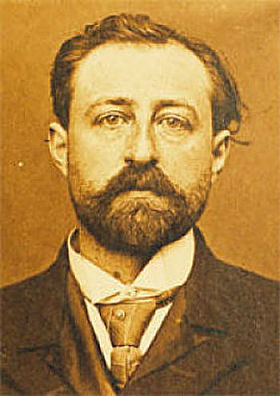
Charles Malato
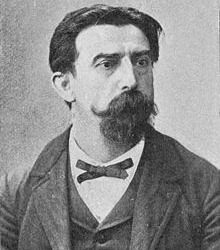
Jean Allemane
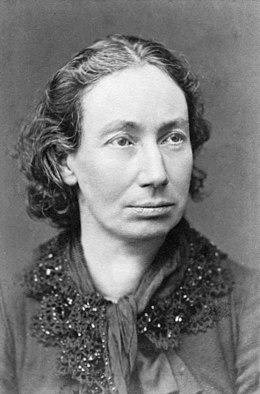
Louise Michel
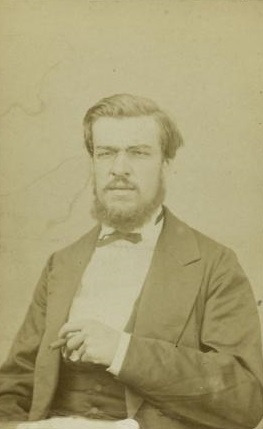
Eugène Mourot
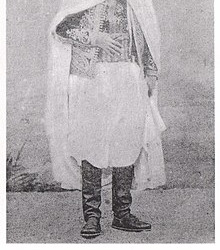
Bou-Mezrag El-Mokrani, brother of Mohamed El-Mokrani
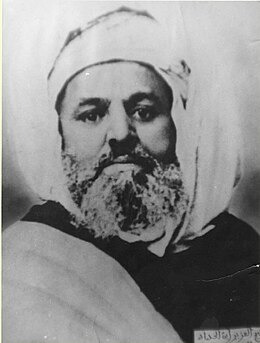
Cheikh El Haddad father of Aziz el Haddad and Cheikh M'hand
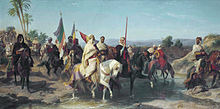
Chérif Boubaghla and Lalla Fatma N'Soumer (Henri Félix Emmanuel Philippoteaux, 1866) alleged portraits
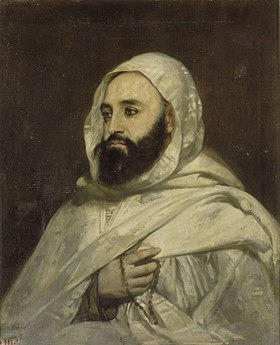
Émir Abdelkader
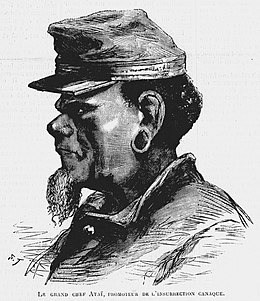
Ataï
And so, this is the paradox of these two French "revolutionary groups" from 1792-1794, and the group of the Communards from 1870. The first group, still very timid on certain social rights such as property rights (even within the extreme left), was nevertheless much more committed to advocating for more rights among men of different colors, with some even going further by supporting the ideas of revolts by the colonized. Moreover, the colonizers were much less listened to after a certain point in time.
In contrast, during the Paris Commune, while there were more progressive ideas and people who were less conservative about property rights (after all, there was representation from collectivists), they were much less engaged in supporting the colonized and at times even approved of colonial repressions.
Sources: Jean Marc Schiappa Alain Decaux Antoine Resche Mehdi Lallaoui - Kabyles du Pacifique
P.S.: I'm not trying to hand out praise or criticism regarding property rights. I'm merely attempting to make an observation. In fact, I might even be wrong on certain points, so I invite you to correct me. And I don't intend to bash the Paris Communards, many of whom suffered or gave their lives for an ideal Republic, and whose horrific repression we don't often discuss. But it's important to acknowledge everything, including their mistakes. Perhaps one day I should address the question of the French left as a whole, from 1789 to 1962, concerning colonization.
#frev#french revolution#france#commune#Paris Commune#1700s#1800s#algeria#new caledonia#colonization#Kanaks#marat#louise michel#Blanqui#babeuf#sonthonax#toussaint louverture#third republic
23 notes
·
View notes
Text

Mais qui n'aime pas prolonger ce moment délicieux qui précède le premier baiser, quand deux êtres qui ressentent l'un pour l'autre quelque inclination amoureuse ont déjà tacitement décidé de s'embrasser, que leurs yeux le savent, leurs sourires le devinent, que leurs lèvres et leurs mains le pressentent mais qu'ils diffèrent encore le moment d'effleurer tendrement leurs bouches pour la première fois ?
Jean-Philippe Toussaint, Faire l'amour.
Désobeissance de Sebastián Lelio (2018)
14 notes
·
View notes
Text


Mardi
Ma fille a envoyé de Kyôto cette image (en haut) d'une balade nocturne sous les cerisiers en fleurs, au bord de la Takasegawa, en compagnie de son mari. Pendant ce temps les kids sont en classe verte au bord de la mer du Japon. D'après les photos reçues depuis deux jours, ils se régalent et font le plein de souvenirs. De ce côté-ci de la terre, la lune, éclatante et déjà bien ronde. Elle sera pleine dimanche. La nuit a maintenant succédé au soir et quelque chose retient son souffle.
C'était cela la grâce, me semblait-il, ce mélange de plénitude et de légèreté, qu'on ne pouvait éprouver qu'à quelques heures privilégiées de la vie : en écrivant ou en aimant. (Jean-Philippe Toussaint, "La télévision")
5 notes
·
View notes
Note
what are some of your LGBTQ headcanons for some of the CC characters?
My LGBTQ headcanons for CC characters? Sure, I’ve got some! I’ll also list some characters' canon facts since I support them, but let’s see what non-canon ones I can come up with!
And disclaimer! These are my current LGBTQ headcanons; there is a chance that they could change as my story progresses!
Sexuality-based LGBTQ Headcanons:
Main Characters
Heterosexual/Ally:
Samuel King
Eduardo Ramirez
Frank Knight
Elizabeth Ripley
Angela Douglas
Elliot Clayton
Arthur Wright
Issac Bontemps
Diane Parker
Gloria Hayes
Gabriel Herrera
Penelope Sage
Priya Desai
Felix Reed
Gay:
Nathan Pandit
Amir Devani
Orlando Ordelaffi
Ben Shepard
Lesbians:
Hannah Choi
Carmen Martinez
Michelle Zuria
Evie Holloway
Rose Zhao (She and her husband married for none-romantic reasons)
Bisexuals:
David Jones (Has a preference for women ((and hasn’t realized his attraction to men yet…))
Grace Delaney (She tried to get Jones to realize his sexuality in high school but couldn't get him to understand…)
Alex Turner
Andrea Marquez
Yann Toussaint
Jack Archer (With a preference for women, but unlike Jones, he recognizes his feelings toward men)
Lars Douglas (He likes to call himself and Jack bi-bros and bi-buddies)
Marina Romanova
Jonah Karam
Cathy Turner
Nebet
Christopher Scott
Jacob Arrow
Hugo Mercier
Pansexuals:
Amy Young
Roxie Sparks
Maddie O’Malley
Charlie Dupont
Deigo del Lobo
Martine Meunier
Janis Rivers
Jean-Philippe Delacroix
Gauthier Delacroix
Enzo Traoré
Léa Bonnet
Polyamory:
Zara Tien
Theo Moon
Kai Malano
Nadia Den Yamin
Demisexual:
Russell Crane
Ingrid Bjorn
Rupert Winchester
AroAce:
Dick Wells (This man called science his mistress once, and I have headcanoned him as AroAce ever since!)
Hope Newman
Acesexual:
Armand Dupont
Viola Pemberton
Questioning:
Rita Estevez: Thought she was straight but started having feelings towards a certain woman…
Luke Fernandez: He thought he was straight, but after everything with Fabien de la Mort, he started questioning
Carrie James: Unsure of her sexuality
Émile Bardot: Unsure of her sexuality
Other Characters
Olivia Hall: Lesbian
James Savage: Demisexual
Edward Dante: Pansexual
Karen Knight: Bisexual
Nigel Adakue: Gay
Asal Hawaa: Bisexual
Katherine Woolf: Lesbian
Jasper Everett: Gay
Mia Loukas: Bisexual
Arthur Darkwood: Gay
Geroge Mathison: Gay
Cody James: Pansexual
Gender-based LGBTQ Headcanons:
Nathan Pandit: Transgender (female to male)
Alex Turner: Demiboy
Hannah Choi: Demigirl
Jean-Philippe Delacroix: Genderqueer
(I don’t have many gender-based headcanons yet…)
That’s everything I could come up with! And like always, I am open to hearing about your opinions, headcanons and suggestions on this topic!
#criminal case#criminal case grimsborough#criminal case pacific bay#criminal case save the world#criminal case mysteries of the past#criminal case the conspiracy#criminal case travel in time#criminal case supernatural investigations#criminal case city of romance#headcanons#ask
53 notes
·
View notes
Text
Mais qui n'aime pas prolonger ce moment délicieux qui précède le premier baiser, quand deux êtres qui ressentent l'un pour l'autre quelque inclination amoureuse ont déjà tacitement décidé de s'embrasser, que leurs yeux le savent, leurs sourires le devinent, que leurs lèvres et leurs mains le pressentent mais qu'ils diffèrent encore le moment d'effleurer tendrement leurs bouches pour la première fois .....✨✨✨💞

Jean-Philippe Toussaint Faire l'amour
51 notes
·
View notes
Text
Criminal Case masterlist navigation
"Welcome detective to our bulletin board where we see one of headcanons!"
(It will update once I make headcanons, incorrect quotes or imagines-)
Signs:
Crossing - Either one of members betray, died, arrested or defect which excludes resigned
Italic - Means returning members like Jack will have post timeskip headcanons (Does that even make sense I hope so-)
Grimsborough
season 1 and 5
David Jones
Cathy Turner Diane Parker
Gloria Hayes
Martine Meuiner
Grace Delaney
Gabriel Herrera
Rita Estevez
Eduardo Ramirez
Amir Devani
Samuel King
Rupert Winchester
Pacific Bay
Amy Young
Russell Crane
Frank Knight
Roxie Sparks
Yann Toussaint
Hannah Choi
Andrea Marquez
The Bureau
Jack Archer
Elizabeth Ripley
Ingrid Bjorn
Elliot Clayton
Carmen Martinez
Johan Karam
Marina Romanova
Angela Douglas
Lars Douglas
Armand Dupont
Michelle Zuria
Grace Delaney
CFS (Concordian Flying Squad)
Arthur Wright
Isaac Bontemps
Maddie Dupont
Richard Wells
Charles Dupont
Viola Pemberton
Rose Zhao
Evie Holloway
Diego del Lobo
T.I.M.E
Jack Archer
Zara Tien
Nebet
Orlando Ordelaffi
Penelope Sage
Marina Romanova
Janet Rivers
Theodore Moon
Kai Malando
Christopher Scott
Supernatural Hunters
Jacob Arrow
Gwen Harper
Luke Fernandez
Headcanons 1
Ben Shepherd
Priya Desai
Hope Newman
Felix Reed
Parisian Police Squad
Jean-Philippe Delacroix
Gauthier Delacroix
Hugo Mercier
Carrie James
Nadia Ben Yamin
Enzo Traore
Emile Bardot
Lea Bonnet
12 notes
·
View notes
Text
FOR WANT OF A NAIL
@baldwin-montclair @adowobsessed @sylverdeclermont @nicki-mac-me @thereadersmuse @kynthiamoon @wheresthesunshinesblog @adowbaldwin @beautifulsoulsublime @lady-lazarus-declermont @adarafaelbarba @dogblessyoutascha
Part Thirty-Nine
Summary: Baldwin Montclair had a string of ex girlfriends, a single child, and a lifetime longer than most people could dream of to make all kinds of mistakes. His family knew one which kept coming out of the woodwork to irritate him every other century.
Also on AO3
'We should build in contingencies for when this madness ends,' said Martin.
The other delegates had broken off, each claiming an administration room within the palace for themselves. Philippe had, of course, picked the most spacious one for himself; a broad fireplace, sturdy wooden chairs and large windows with a clear view of the city.
'You think it ever will?' Gerbert sneered.
'The humans can hardly hate us forever.'
'Wait and see.'
'In the meantime, how long should we lead for?' Philippe interrupted, brandishing a quill.
'One hundred years' said Gerbert.
'Witches may live that long, but not daemons' Martin pointed out.
'Seventy years' said Philippe.
Martin raised an eyebrow. 'Do you want an infirm daemon making decisions? Fifty years. The better part of a life, with room for a second term if they prove particularly long-lived.'
'They should be allowed to serve terms back to back,' Gerbert said through a smile.
'But only after being sworn in officially a second time.' Martin added.
Philippe took notes through argument and counter-argument.
'-all creatures are to abstain from achieving positions of authority within religious orders whereby they can shape religious doctrine or practise?'
'What?' Gerbert demanded.
Martin glared at him. 'I refuse to stage another false funeral for you because you want to be Pope. I have not the strength.'
'Which leads us into-' Philippe checked his list of suggestions. '-"All creatures will refuse any honour above the lowest rank accorded a man of state".'
'A baron' Gerbert sat back hard in his chair.
'Do you mean to tell me this will limit your political machinations?' Martin scoffed with a grin.
________________________________________________________________
The witches were surprisingly accommodating. They had been open to the idea of a one hundred year seat, with back to back terms, and made no fuss about religious isolationism.
'We will, of course, concede to the majority,' Jean de Villiers inclined his head towards the rest of the room. He was sitting beside Irakli, a witch from Sakartvelo, and Quincey Toussaint, another Frenchman. 'A fifty year term. Now, we do have some suggestions of our own.'
He paused and cleared his throat.
'No member of the Congregation may hold a seat of power within it concurrent to governance within any other organisation.'
Martin raised his hand. 'This is for human organisations as well as creature? Or only the former?'
'The former, I think. To simplify matters.' Polissena, the daemon nun who had spoken up during the initial meeting, was from Milan. She was sitting across from Martin on the right, flanked by a Swedish hän called Uoti, and a male daemon from Scotland called Ingeramium.
'And will you be relinquishing control of the Knights Hospitaller?' Philippe asked. Martin looked at him with the corner of his eye; he was projecting an outward sense of calm, but Martin knew him well enough to see the anger sizzling beneath.
No other De Clermonts in the Congregation. Not as long as they are the head of the Knights of Lazarus. Pity.
'I have already made arrangements to pass on my appointment' Jean reassured.
________________________________________________________________
Martin clutched the leatherbound book in his hands as the carriage lurched through Arles. He had painstakingly written down the agreed-upon tenets of the Congregation's laws, binding his notes so that he would not lose them. He had even had them signed; Philippe volunteered a signature, then Gerbert. Polissena's spider-like lettering prickled across the page above her seal, next to Uoti's blocky handwriting and Ingeramium's neat scrawl.
The carriage lurched over something and there was a clank as the seals hit his leg. Jean had said that they would authenticate the copy and make it more official. Irakli had laughed and said that the seals made the book look like a patent of nobility.
The carriage swung sharply to the left, up a secret track leading up into the forest at the edge of the city. The track smoothed into a cobblestone laneway as they climbed higher into the mountains, a tree tunnel of silver birch obscuring Martin's view.
The road ended in a solid wall of interlocking branches choking the way. As the carriage rolled closer the branches parted to reveal a wide forecourt and a towering golden-brown fortress.
Martin had many mansions and castle throughout Burgundy, but Kamb-atsu was his true home. It had started life as a wooden fortress he had built atop a series of rockpools and caves, and when the mineral deposits in the ground had turned the foundations to stone he had used magic to rapidly petrify the rest.
Kamb-atsu's outer shell was an inverted copy of his castle at Beaune; a rectangular pentagon pointing out over a cliff with a river flowing gently below.
There were four towers, two to each side. A door set in the front tower on the left led into the library and the entrance hall. The tower to the right, and the section of the building behind it, contained the kitchen and laundry, the stores, and the servant's quarters.
Martin's guests were waiting for him in entrance hall. 'Ladies, welcome.'
'You summoned us, m'lord?' Rochelle Laisnié bowed stiffly, and smiled to let Martin know she was joking. Bertille Garnier and Joachine Moreau hadn't bothered standing; they raised their hands and Martin kissed the back of them, and pulled out Rochelle's chair for her so she could sit down.
'I am sure you are all aware that this meeting is..no longer legal.'
'We are, m'lord' Joachine grimaced like she had tasted something foul. She and Bertille had known Martin their entire lives; Rochelle's family had moved into the area when she was sixteen.
'I do not wish to sacrifice the relationship your families have with me,' Martin said evenly. 'But that is not for myself alone to decide.'
The witches stirred, glancing at each other.
'You know me. There will be no repercussions if you wish to leave.'
Bertille hesitated, then reached out and gently to Rochelle and Joachine by the hand. She straightened in her chair.
'What is a little high treason among friends?'
Author's Notes
Excerpt from The World of All Souls, page 37 (I believe this may be a picture of Hamish's notes on Congregation law):
Notes on Creatures from the Jerusalem Codex (trans. from Latin)
"We therefore agree, because of the dangerous temper of the times, to undertake these solemn oaths and promises to ensure the safety and well-being (solus?) of our selves, our progeny and our future. We undertake to bind daemon to witch, witch to lamia, and lamia to daemon within the solemn vow of the covenant."
"With respect to the great controversies and inconveniances that have accompanied the holding of titles and offices by the lamia, the covenant forbides them from accepting any honour above the lowest rank accorded a man of state. The daemons and witches are likewise barred from accepting such honours, for to do otherwise would sow discord among the covenanted."
"Similarly, daemons, lamia, and witches must, from this moment forth, abstain from debates over matters of faith. Covenanted creatures may choose to enter religious orders, but shall not aspire to positions within them that shapes religious doctrine or practise."
The Congregation was originally founded in Jerusalem, but moved to Constantinople after the fall of Outremer. I decided to speed up the process.
Jean de Villiers and Jaques de Taxi were real people! According to Wikipedia, "[he] was the twenty-second Grand Master of the Knights Hospitaller, serving from 1285 until 1293 after the death of Nicolas Lorgne. Jacques de Taxi became Grand Master ad interim, perhaps through 27 June 1286, while awaiting the arrival of the newly elected Grand Master from the Holy Land. De Villiers was present at the Siege of Acre in 1291, but escaped just before the city fell to the Mamluks. He was succeeded by Odon de Pins."
I feel that daemons have a long history of electing female spokespeople for the Congregation.
The Finnish language doesn't have gendered nouns or personal pronouns like she/her, he/him, they/them. Instead, they use hän as a gender-neutral, all-encompassing term. It was first recorded in the Abckiria, or the ABC book, which was the first book published in the Finnish language in 1543, but the term pre-dates the this.
In this instance, I have used hän as a descriptive for Uoti both because it is correct grammar for a Finnish person, and because they are a gender-neutral individual. Non-binary people have existed in the past, even as far back as the Iron Age:
https://www.theguardian.com/world/2021/aug/09/1000-year-old-remains-in-finland-may-be-non-binary-viking-researchers-say
This is what a patent of nobility looks like:
Kamb-atsu - bend in a river
#a discovery of witches#adow#baldwin montclair#all souls trilogy#baldwin de clermont#all souls series#all souls tv series#a discovery of witches season 1#a discovery of witches season 2#a discovery of witches season 3#bibaldwin
6 notes
·
View notes
Text
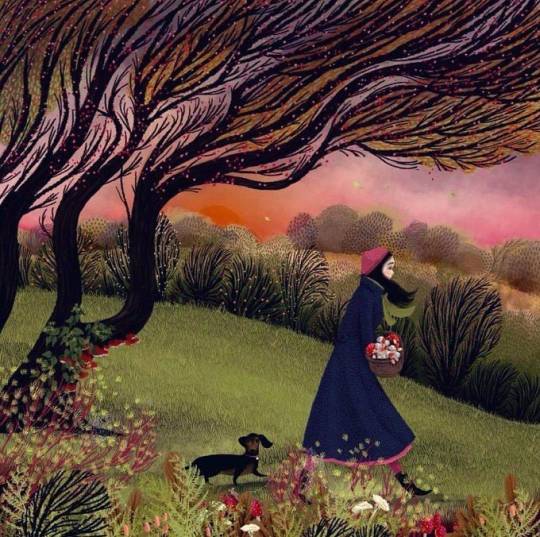
By doing nothing, I mean doing nothing thoughtless or forced, not doing anything guided by habit or laziness. By doing nothing, I mean doing only the essentials, thinking, reading, listening to music, making love, going for a walk, going to the swimming pool, picking mushrooms. To do nothing, contrary to what one might imagine a little quickly, requires method and discipline, openness and concentration. Jean-Philippe Toussaint
7 notes
·
View notes
Text
(Je n'ai pas encore écouté)
0 notes
Text
To flee is to seek, and in seeking, we often find ourselves in unexpected places.—Jean-Philippe Toussaint
0 notes
Text
Post on a Short Period Concerning Political Spectrums from 1789 to 1848 to Counter Misconceptions About the Far Left and Far Right

Sociétés des Jacobins (Jacobin Societies)
We all know the famous phrase: “The far right and the far left are the same thing; they’re no better, etc.” However, the far right and the far left are clearly not the same. This definition should not be taken literally, as it pertains more to the Restoration period concerning property rights (and even then, it’s more complex). The far right believes that property should belong to the traditional elites (the emigrated nobility), while the far left has a different view like sharing the property for maximum people . And first, on which political spectrum are we basing this? From which period?
In 1789, those considered far left were deputies like Pétion, François Buzot, and Maximilien Robespierre. Non-deputies aligned with the far left included figures like Danton, Camille Desmoulins, and Manon Roland, among many others.
However, during the second revolution in 1792, these figures would split. What came to be known as the Girondins (though there were many differences within this group) would constitute the more conservative wing (including Buzot, Pétion, and Manon Roland), while the Montagnards represented the far left. Yet, on the issue of slavery, many from both sides agreed on its abolition: Brissot proposed a gradual abolition, Sonthonax was sent to Saint-Domingue to enforce it, and Abbé Raynal (though seemingly conservative on property rights) was highly reformist on slavery, even calling Toussaint Louverture the “Black Spartacus.” The Montagnards, like Danton and Jean-Paul Marat (who supported the Haitian revolt and predicted its independence), joined in this cause, as did the Hébertists like Pierre Gaspard Chaumette, who shared Marat's views on Haiti.
The first major division between the Girondins and the Montagnards was over the issue of war, and it’s clear that the Montagnards were ultimately proven right on these question. What we now call the far left of this period consisted of elements considered a faction called the Hébertists (including individuals like Momoro, Chaumette, Hébert, François Hanriot, Charles Philippe Ronsin, Vincent François Nicolas, etc.) and another group known as the Enragés (Jacques Roux, Théophile Leclerc, Jean-François Varlet, Pauline Léon, Claire Lacombe, etc.). These two factions were also called ultra-revolutionaries and were much more socially engaged on certain political issues than Montagnards like Robespierre, Desmoulins, Danton, etc.
During the insurrection from May 31, 1793, to June 2, 1793, in which the Paris Commune, led in part by François Hanriot (following the arrest of Hébert and the Sans-Culotte delegation demanding his release, along with Isnard’s speech and the Commission of Twelve), expelled 21 Girondins who were initially placed under house arrest (we all know what happened next, but that’s not the focus here). The Montagnards who approved this insurrection portrayed themselves as allies of the Sans-Culottes. However, it’s important to note that not many of them viewed this leftist faction favorably (Marat became an opponent of Jacques Roux, and after his death, his widow Simone Evrard gave a speech against Jacques Roux and Théophile Leclerc among others ). The Committee of Public Safety and the Convention illegally persecuted Jacques Roux to the point where he committed suicide, suggesting that the Montagnards were beginning to shift further to the right. Furthermore, there were internal conflicts within the far left. The Hébertists clashed with the Enragés and later took up their petitions after many of them were removed from the political scene.
Later, on September 5, 1793, as the French Revolution seemed more endangered than ever, the Commune, led by figures like Chaumette, Hanriot, and Pache, arrived at the Convention without opposition, securing concessions such as the maximum price controls and the raising of a revolutionary army. The Montagnards seemed ready once again to support this far left on some points. However, conflicts and internal struggles soon reemerged. This time, the Indulgents, including Camille Desmoulins, Georges Jacques Danton, and Pierre Philippeaux, formed the Montagnards’ right wing. Initially, the majority of the Convention supported them against the elements considered far left (notably Robespierre, among others), but the majority of the Committee of Public Safety eventually realized they had also underestimated the Indulgents and opted for a middle-ground policy. The struggles among these different factions further weakened the Montagnards. However, they all shared a common goal of celebrating the abolition of slavery. This wasn’t enough for reconciliation; most far-left elements (Pache and Hanriot were notably spared from the Hébertist arrests) were politically eliminated (and it’s important to note that Billaud-Varenne and Collot d’Herbois, who represented the far left of the Committee of Public Safety, participated in this elimination).
Regarding property rights, the entire political class was very timid, even the Enragés and Hébertists, who were more focused on economic issues like taxation. However, some like Momoro apparently began to consider land redistribution like sharing large farms, but without a clear plan (and far from any notion of collectivization of agriculture) . There was a concession made by the Convention on property rights with the Ventôse Laws, perhaps? Previously, when the property of someone convicted of being an enemy of the Republic was seized, it went directly to the state. With these laws, the property was supposed to be redistributed to the needy, perhaps even the property left by émigrés. This was rarely, if ever, implemented.
Later, the eliminations continued with the Indulgents, internal struggles persisted in Thermidor, and the left suffered its final blow following the repression of May 20, 1795.
Indeed, even before May 20, 1795, there was a rightward turn at the end of 1794. In 1795, economic liberalism exacerbated the situation of the popular classes, leading to the insurrection of 1st Prairial Year III. The repression provided an opportunity for the right to eliminate from the political scene people like Goujon and Charles Gilbert Romme, who were considered the last Montagnards.
During the Directory, new far-left elements emerged, the most well-known being the Babouvists. Gracchus Babeuf’s “Manifesto of the Equals” was seen as promoting equality. Nevertheless, while some consider Babeuf to be a precursor to communism and he did advocate for deep social change, his interest was limited to agricultural domains. Lazare Carnot, who led the repression of the Babouvists, was seen as belonging to the right political wing .
The most interesting case considered far left is the neo-Jacobin Bernard Metge. In his work “Dialogue between a Representative of the People and a Former Administrator,” he sharply criticizes the Council of Five Hundred for ignoring the opinions of citizens, yet he also delivers a violent critique of the Babouvists, arguing that their ideology would, in his own words, produce nothing but lazy people. He wrote to the Minister of Police from prison, where he was detained, saying, “Indeed, preach the sharing and equality of goods, and you will have lazy people.” Although a fierce opponent of Sieyès, he advocated political liberalism and supported the Constitution of Year III. However, in his writing that sealed his fate, “The Turk and the French Soldier,” we see another side of Metge: he could be interpreted as opposing expansionist and conquest wars, notably by defending the Egyptians, but also as glorifying the right to resist. He also glorifies Brutus.
When he was arrested and executed by the Bonaparte regime (then the First Consul) for his opinions, he was considered one of the 34 anarchist leaders by the Brumaire regime. On this political spectrum, he was seen as a far-left figure, while on another spectrum, like in 1794 or around 1848, he would likely have been considered a right-wing figure. Metge was executed in a parody of justice. For more details on this revolutionary, visit this Tumblr post: https://www.tumblr.com/nesiacha/756533326215528448/the-jacobins-executed-by-bonaparte.
The most interesting example from this period is Lazare Carnot. Initially a Montagnard in 1793 when he was on the Committee of Public Safety, during the Directory, he took an increasingly right-wing position, including the repression of the Babouvists, where even Barras hesitated. He was certainly the Minister of War under Bonaparte, but in a sense, he found himself once again on the far left of the political spectrum under Bonaparte’s Consulate (a deliberate provocation on my part to better highlight the complexity of different periods on the political spectrum) because he was in the official opposition (after all, the rest of the opposition was either silenced, imprisoned, or deported, like Félix Lepeletier, etc.). He was marginalized for opposing the creation of the Empire.
Then we have the case of the Restoration with the “Chambre introuvable” appointed by Louis XVIII, long considered a chamber more royalist than the King (including figures like Louis de Bonald). Some analyses tend to moderate this; while it’s true there were émigrés from the nobility, the bourgeoisie aspiring to be ennobled, turncoats, and provincial notables, it’s also true that ultra-royalists like Charles X influenced it, making it far more right-wing politically than any other period. Decazes and, more importantly, François Guizot stood up to the ultra-royalists and advised dissolving the Chamber.

Chambre introuvable
Constitutionalists (39) Color to the left Ultraroyalists (350) Even if we have to give more thought to the ultra-royalist side
Yet, under Louis Philippe I’s political spectrum, Guizot was one of the most conservative figures. He was the staunchest defender of conservative and right-wing policies.

François Guizot (1787-1874) painted by Jean-Georges Vibert after a portrait by Paul Delaroche.
Through all these examples, I wanted to caution against the misconception that far left equals far right. History has shown the opposite through the examples cited above, demonstrating that the economic or property-related views of the far left and far right are not the same at all. Individuals situated on the far left can shift to the most conservative right-wing positions depending on the political spectrum of the period, and vice versa, without necessarily changing their political ideas.
Sources:
Antoine Resche
Jean Marc Schiappa
Jean Clément Martin
Bernard Gainot
#frev#french revolution#napoleonic era#louis xviii#Charles X#Monarchy#political spectrum#convention#constitutional monarchy
15 notes
·
View notes
Text
C'est vous l'écrivain

C'est vous l'écrivain, avait lancé un jour Jérôme Lindon, l'éditeur historique des Editions de Minuit à son jeune auteur quand celui-ci lui demandait des conseils sur son livre en gestation... Dans cet essai, Toussaint raconte son parcours d'écrivain depuis la sortie de La Salle de bains en 1984 : l'importance comme disait Virginia Woolf, d'avoir un lieu à soi, la relation très importante à son éditeur et la fidélité à sa maison d'édition, l'étincelle d'écriture et la question d'écrire tout le temps ou de se laisser des plages de temps pour vivre, le style, la relecture, la lecture, le rapport aux libraires, les dix commandements adressés à l'apprenti écrivain... Jean-Philippe Toussaint nous fait entrer dans les coulisses et c'est très instructif.
7/10
C'est vous l'écrivain / Jean-Philippe Toussaint.- Le Robert.
0 notes